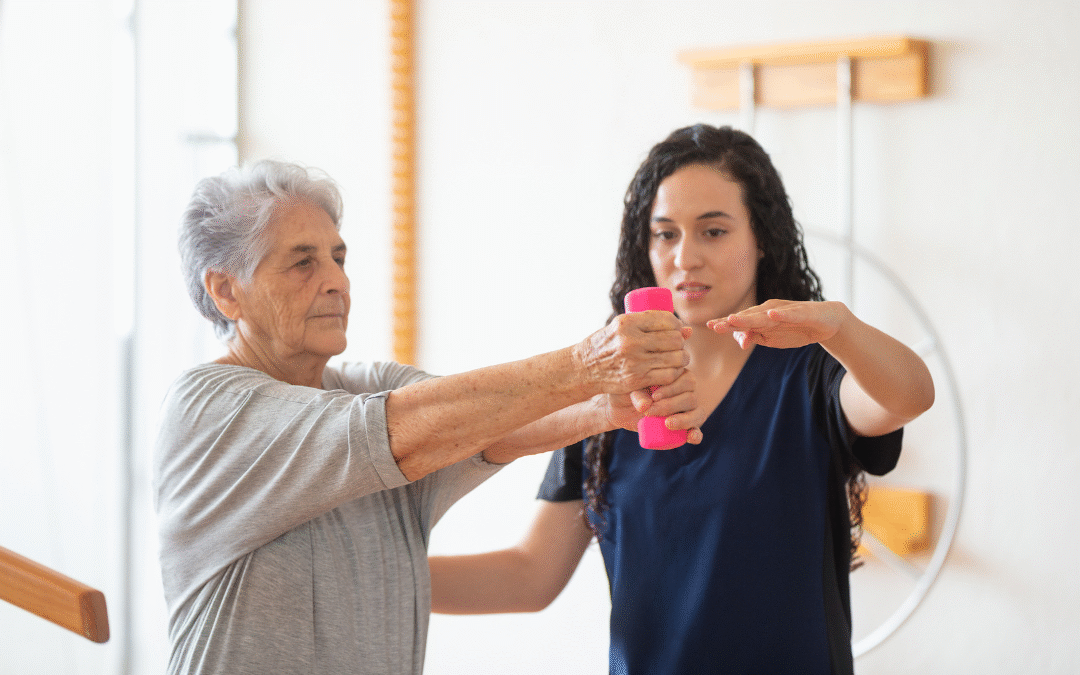Occupational therapy helps build a healthier life by using everyday activities to improve independence, providing cognitive support, and creating sustainable habits.
The goal of occupational therapy (OT), a client-centered health profession, is to use occupation to promote health and well-being. However, what does that actually mean? Essentially, occupational therapists use everyday activities as a therapeutic tool to help people of all ages engage in the activities they need and want to do. OT provides useful, individualized strategies to help you create a healthier, more satisfying life, whether you’re managing a chronic condition, recovering from an injury, or just trying to make your daily routines better.
Beyond Physical Recuperation
Occupational therapy adopts a comprehensive approach, in contrast to certain therapies that might only concentrate on physical recovery. It takes into account your emotional, social, and environmental challenges in addition to your physical ones. OTs are aware that the ability to do meaningful activities, such as dressing oneself, taking up a hobby, or going back to work, is a key component of true well-being. OTs can develop genuinely customized plans that cater to your particular needs and objectives thanks to this all-encompassing viewpoint.
Call Home Rehab Consultants at (201) 661-0811 for a consultation.
Developing Self-Sufficiency in Everyday Tasks (ADLs & IADLs)
Improving independence in Activities of Daily Living (ADLs) and Instrumental Activities of Daily Living (IADLs) is one of occupational therapy’s main goals. Basic activities like eating, dressing, taking a shower, and maintaining personal hygiene are examples of ADLs. IADLs include more complicated tasks like cooking, money management, shopping, and driving that are essential for independent living. An occupational therapist can evaluate your present skills, pinpoint obstacles, and offer assistive technology, adaptive methods, or environmental adjustments to make these tasks easier and safer for you to complete.
Emotional and Cognitive Assistance for Better Living
Occupational therapy addresses mental and emotional health in addition to physical tasks. OTs can apply techniques to enhance memory, attention, problem-solving, and executive functions for people dealing with conditions like stroke, traumatic brain injury, or even age-related cognitive decline. Additionally, they can assist people in creating coping strategies for stress, anxiety, or depression that may affect their capacity to function in day-to-day activities. OT gives people the tools they need to take back control and engage more fully by addressing these frequently disregarded factors.
Did you know?
Occupational therapists can help design accessible homes and workplaces, making environments safer and more functional for everyone.
Tailored Techniques for Durable Lifestyle Modifications
Occupational therapists are skilled at examining activities and settings to find obstacles to involvement. They show you how to do it, modifying methods and settings to fit your particular skills rather than merely telling you what to do.
Assistive technology and adaptive techniques
A minor adjustment can occasionally have a significant impact. OTs are adept at suggesting assistive technology and introducing adaptive techniques, which are new methods of completing tasks. This could include ergonomic office workstations to prevent repetitive strain injuries, modified eating utensils for someone with weak grips, or even specialized equipment for people with mobility issues. These solutions aim to maximize your safety and independence rather than relying on you. In order to smoothly incorporate these solutions into your home setting, we provide thorough assessments.
Creating Long-Term, Healthful Habits
Occupational therapy aims to help you develop long-lasting healthy habits, not just help you recover or adapt right away. This includes teaching people with chronic fatigue how to save energy, how to manage pain and stress, and how to create routines that promote general health. OTs help you not only manage a condition but also thrive and avoid complications in the future by incorporating these habits into your daily life, thereby promoting long-term well-being.
Ready to explore how occupational therapy can help you achieve a healthier, more independent life? Whether you’re facing a new challenge or seeking to optimize your daily living, Home Rehab Consultants is here to guide you. For a personalized assessment and consultation, call Home Rehab Consultants at (201) 661-0811.
Commonly Asked Questions
Does occupational therapy require a referral from a physician?
Insurance companies frequently require a doctor’s referral in order to cover occupational therapy services. To find out their precise needs, it’s best to speak with the therapy clinic and your insurance company directly.
What distinguishes physical therapy from occupational therapy?
Although both are rehabilitative occupations, the main goals of physical therapy (PT) are pain management, strength, balance, and movement improvement. The goal of occupational therapy (OT), which frequently builds on the progress made in physical therapy, is to assist you in carrying out your daily activities (occupations) by modifying tasks, environments, or teaching you new techniques. They often collaborate to provide all-encompassing care.

